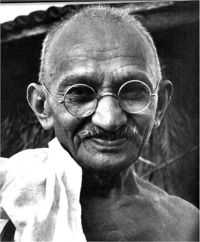The tragedy of the family of the prophet in the Karbala

Bellow is a great article written by Ramzan Sabir (al-islam.org) about this tragic event that took place in the year 61 AH or 680 CE, its background, and lessons learnt:

KARBALA *
CHAIN OF EVENTS
Prepared by:
Ramzan Sabir
HIGHLIGHTS OF KARBALA:
The events of Karbala reflect the collision of the good versus the evil, the virtuous versus the wicked, the collision of Imam Husain (the head of virtue) versus Yazid (the head of impiety). Al-Husain was a revolutionary person, a righteous man, the religious authority, the Imam of Muslim Ummah. As the representative of his grandfather Prophet Muhammad (pbuh), Imam Husain's main concern was to safeguard and protect Islam and guide fellow Muslims. On the other hand, the staying power of the rulers (Mu'awiya and his son Yazid) depended solely on the might of the sword. They used brute force to rule over the Muslim empire even by all possible illicit means.
Imam Husain as head of Ahlul Bayt (a.s.) never recognized Mu'awiya nor his followers. Before him Imam Ali (a.s.) had fought battles against Mu'awiya because Mu'awiya continuously violated the Islamic principles. Imam Al-Hasan (a.s.) had to swallow the bitter pill of making a peace agreement with Mu'awiya, in order to safeguard the security of the Ummah which was at stake. When Yazid son of Mu'awiya declared himself as a ruler over the Ummah, he demanded Imam Al-Husain's (a.s.) allegiance of loyalty. Imam Husain on his part flatly rejected Yazid's rule and behavior, for there was no way Yazid could represent Islam, it would be blasphemy. But Yazid, the tyrant ruler over the Ummah, was adamant in his demand, and tension between the two parties increased day by day.
Imam Husain was quick to realize that giving allegiance of loyalty to Yazid would serve no purpose but to jeopardize the survival of Islam. To safeguard and protect Islam, therefore, the Imam had no choice but to confront and collide with Yazid's rulership irrespective of consequences. Since Yazid had ordered his commanders to seize the Imam's allegiance of loyalty at any cost, even by brutal force, the commanders had to assemble a relatively large army, surrounding Imam Husain's camp in a desert called Karbala. Then they cut off the basic necessities to the camp, including access to water. The camp consisted of Imam Husain, his family, friends, and companions, all of whom stood fast and firmly with him. These braves would rather face death for the noble cause of Islam, than submit to the outrageous tyranny and the un-Islamic ways of Yazid.
Thus, Karbala proved to be a clash involving Islamic truths versus falsehood, right versus wrong, belief versus disbelief, the oppressed versus the oppressor, faith against brute force. Karbala was about standing in the face of oppression, regardless no matter the cost. Thus, in Karbala, Al-Husain the 57 year old grandson of Prophet Muhammad (pbuh), sacrificed his totality and all he had, for one goal. This goal was to let the truth triumph over falsehood eventually, and he did that brilliantly. His goal was to foil the plan that Mu'awiya had expertly developed for his son, Yazid, which was to establish a permanent Benu Umayya rulership over the Muslim Ummah (even by sacrificing the Islamic principles), but doing it in the name of Islam. Brilliantly, Imam Husain succeeded in foiling this plan and he exposed the disreputable nature of Benu Umayya though this was at the expense of his life.

WHO WAS MU'AWIYA?
Mu'awiya was son of Abu Sufyan, a leader of Benu Umayya clan which was one of the clans of Quraish tribes. Mu'awiya grew up in a family known to be cunning, worldly, materialistic, and power hungry. Mu'awiya became Muslim only when Prophet Muhammad (pbuh) triumphed over Mecca. Those who became Muslim in this manner were called Tulaqaa', (a term scornfully used for the disbelievers who became Muslims to save their lives). Mu'awiya, his father Abu Sufyan, his mother Hind, and his brother Yazid son of Abu Sufyan were all Tulaqaa'; Mu'awiya never forgot this stigma for the rest of his life; he could never shake it from his mind, thus a feeling of malicious vengeance always existed in his heart. Mu'awiya's character and aspirations were entirely opposite to that of his sister, Umm Habiba, who was one of the wives of the Holy Prophet (pbuh). Unlike Mu'awiya, Umm Habiba was a sincere believer and a pious person.
Omar, the second Khalifa, appointed Mu'awiya's brother, Yazid son of Abu Sufyan, as the Governor of Syria when the Muslims captured that territory from the Byzantines. Within a few years, Yazid son of Abu Sufyan died of a disease, and Omar appointed Mu'awiya in his brother's place as the Governor. Upon coming to power, Mu'awiya took advantage of the rich public treasury of Syria using it personally to buy favors and influence people. Thus he built a large base of support among some tribes, almost to the fanatic level. He used this to his advantage in later years to form a network of informants (spies) against Ahlul Bayt (a.s.) and their devotees.
To be continued...
Last edited:



